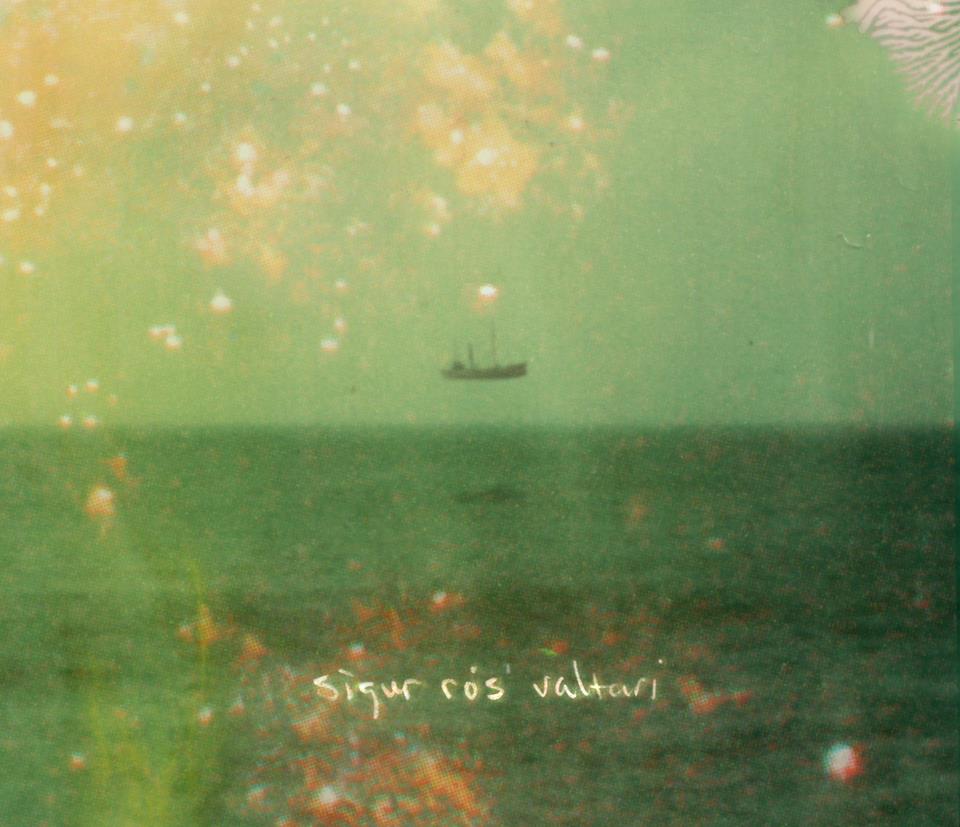Sigur Rós - Valtari

Following a brief hiatus, a couple of independent music projects, and the completion of the documentary film Inni in late 2011, Jonsi and the boys announced a return to the studio for a fifth album. During production, band members met with some strife—a number of tracks begun in 2009 had to be scrapped, and despite some new ideas, a cohesive album was painfully slow to unfold—yet Valtari, as it would come to be called, emerged as a revelatory codex of impressions and intimacies.
This time, Sigur Rós relaxes its emphasis on an acoustic ensemble in favor of evocative electro-symphonic soundscapes. Valtari's ambient, atmospheric textures and scaled-back tempos bear witness to the influence of Jonsi's extracurricular work on the 2009 album "Riceboy Sleeps," unsurprising given its concurrence with Valtari's original sketches. From Ég Anda's simple antiphony, to the lighter-waving balladism of Rembihnútur and the iron lung respiration of the album's title track, Sigur Rós is staking claim to a new level of aesthetic sophistication.
In many ways, Valtari's soft-spoken inwardness counterbalances the extroverted, pop-oriented "Með suð í eyrum við spilum endalaust." The distinction is immediately evident when listening to these two album's opening tracks: the raucously percussive Gobbledigook vs. Valtari's Ég Anda, which features a laborious three minute ascent to the primary musical material, sating for barely a minute before it is summoned back into the void whence it came. In fact, the first powerful rhythmic element in Valtari doesn't manifest until the end of the third track, Varúð, following a series of melodic hooks cast in a dreamy Titanic resonance. Rembihnútur ("Tight Knot") now materializes as the album's extroverted focal point. Regressing stepwise from Ég Anda's D major, through the swampy C minor of Ekki Múkk and Varúð's oceanic Bb minor, we now find ourselves at a rich, serioso Ab major. Like many of the tracks on Valtari, Rembihnútur unwinds in linear development from a restrained intro. Here, out of a sea of tremolos, a solo fiddle emerges, playing what sounds like a folk melody, whose contour foreshadows the upcoming vocal refrain ("when life is all dead at the leaf's end"). This melodic continuity shows the new compositional prowess of the band. While Jonsi obviously has an incredible melodic intuition, I welcome the step away from semi-improvised descant and towards a smarter, motivic approach to melody.
The album's extended denouement begins with the hymn-like Dauðalogn ("Dead Calm"), which exhibits tantric degrees of restraint. From that point forward, the listening experience is like a dying clock, whose second-hand malfunctions and is eventually ground to a halt by the time-dilating rubato of Fjögur Píanó. Listening to Valtari, I feel like a Brooklynite in Wyoming, forced to accustom myself to its characteristic slow pace, such that reentry into the real world almost comes as a shock. Valtari demands a patience which is difficult to muster given our anxious, clock-watching modern lifestyle, yet its musical eloquence and robust sentimentality is virtually unparalleled in contemporary pop music.